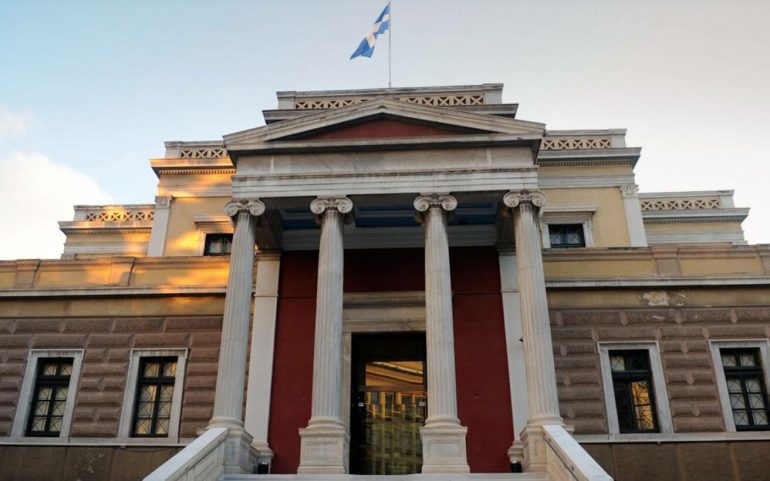Everything is ready for the sitting of the Parliament to begin. It is Monday, January 26, 1931, at four-thirty in the afternoon. There is, however, a small problem. The Prime Minister of the country, Eleftherios Venizelos, and almost half of the Council of Ministers are absent from their seats. The reason is serious, as everyone is in their homes bed with flu that they apparently stuck to each other during their meetings and contacts with the world.
"The president of the government of patients requests that the appointed political debate be postponed until the next day of parliamentary control", the chairman of the plenary session, who was still working in the building of the Old Parliament, on Stadiou Street, typically points out.
Schools and theaters were closed
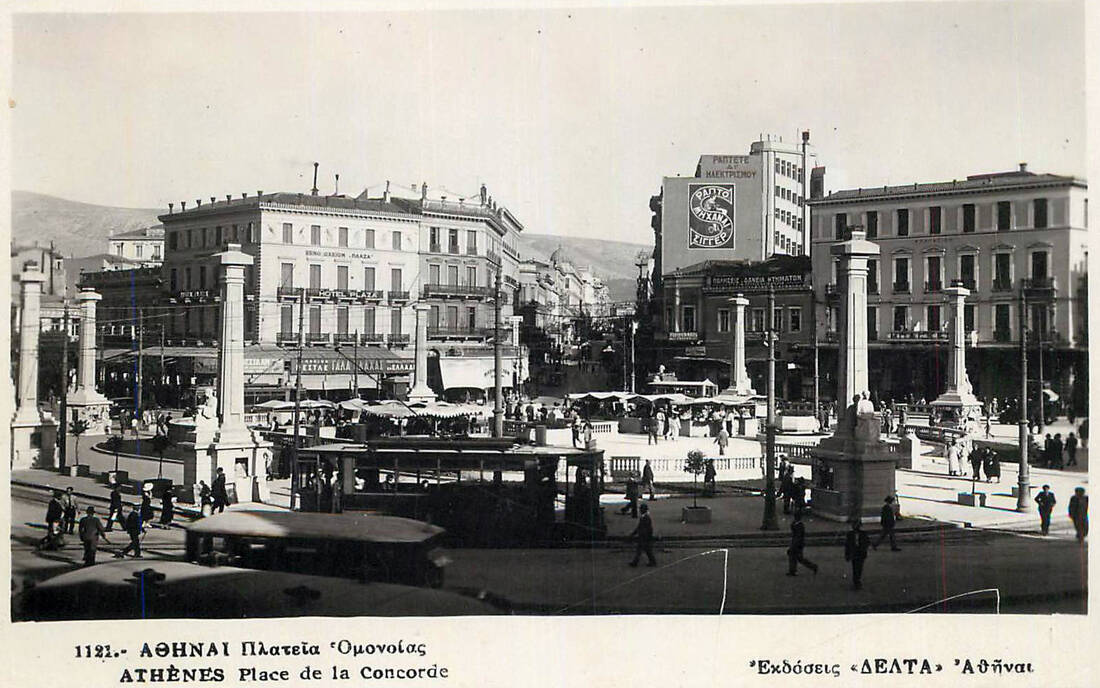
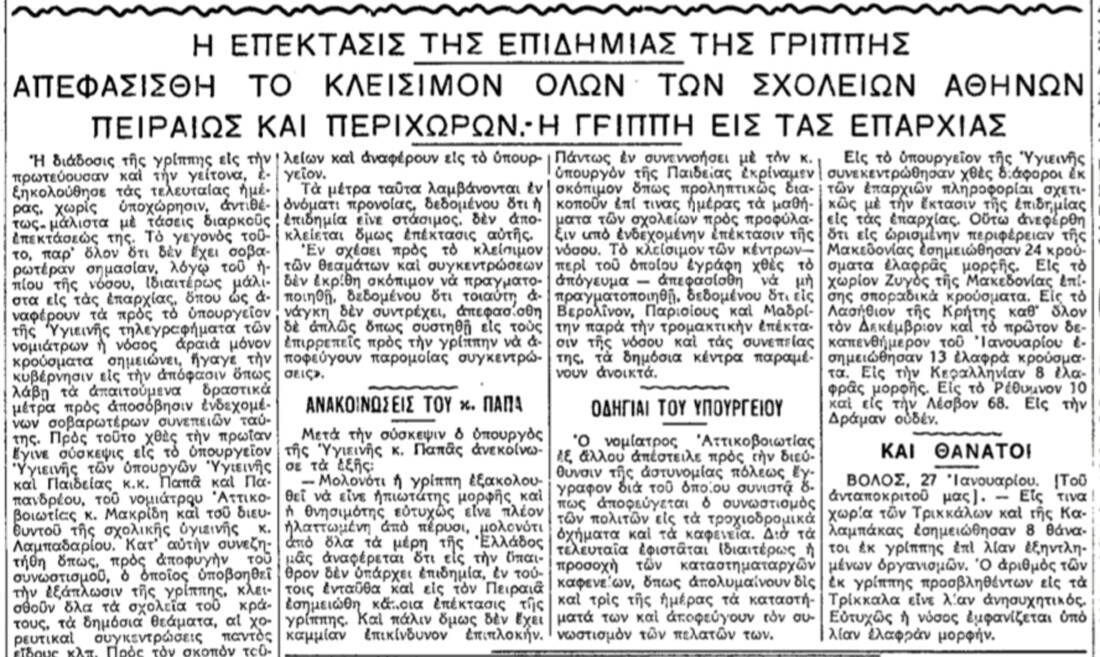
Coronavirus may not have existed, but the common flu did its job just fine, with cases multiplying day by day, prompting the government to take drastic action, closing all schools Athens, Piraeus and surroundings, theaters and cinemas, urging the public to avoid overcrowding and putting health services on constant alert. That is about what is happening today.
The flu led Venizelos to death
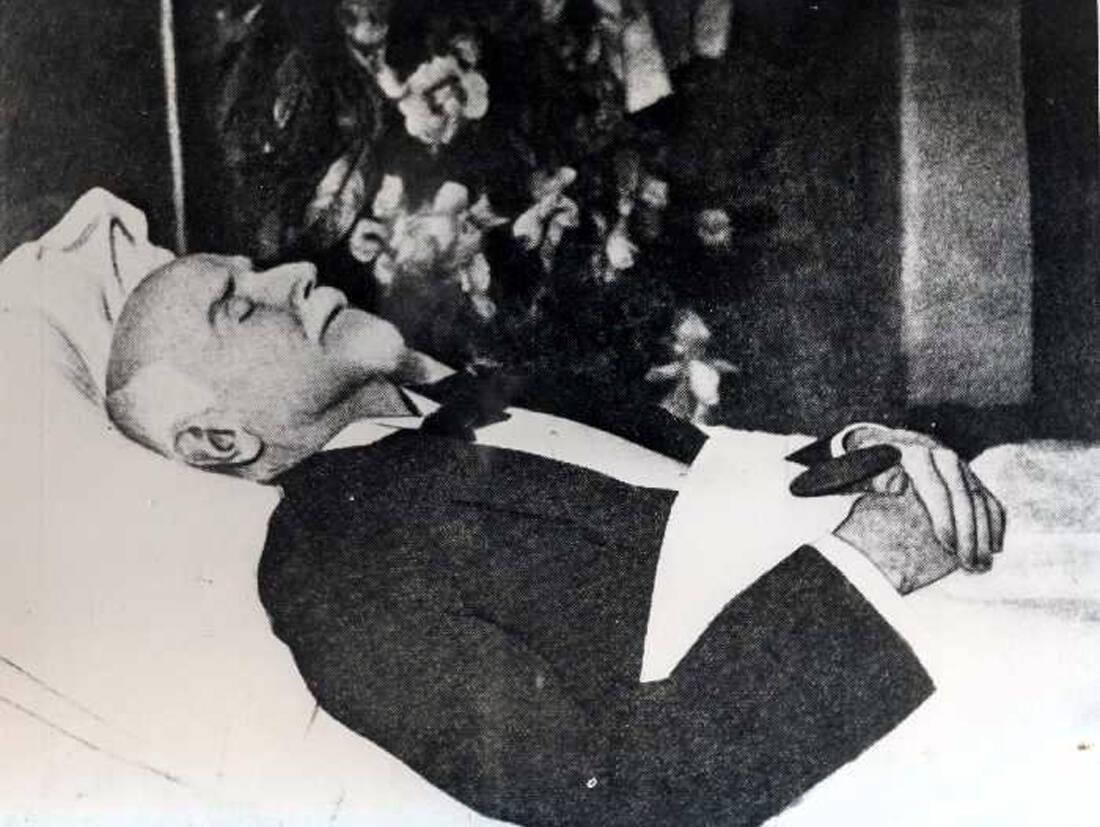
The 67-year-old prime minister was most feared, as he was infected with the virus for the umpteenth time. Almost every winter from 1925 onwards he suffers from these disgusting diseases of the orthovlovirus family, something that also worried his doctors. After all, it was one of the causes of her death in March 1936. It all started with a flu that did not notice her properly, which developed into pneumonia with several side effects and the tragic end was the congestion while in Paris.
Home meetings
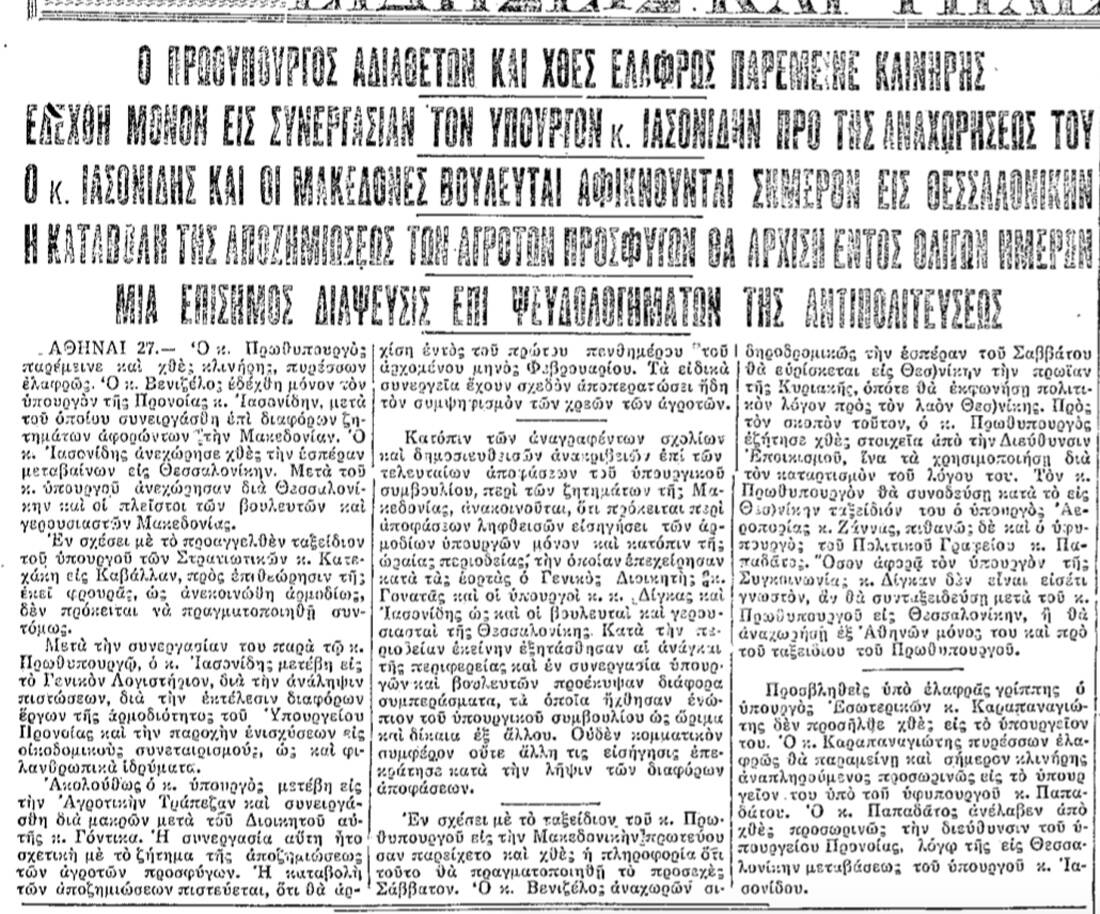
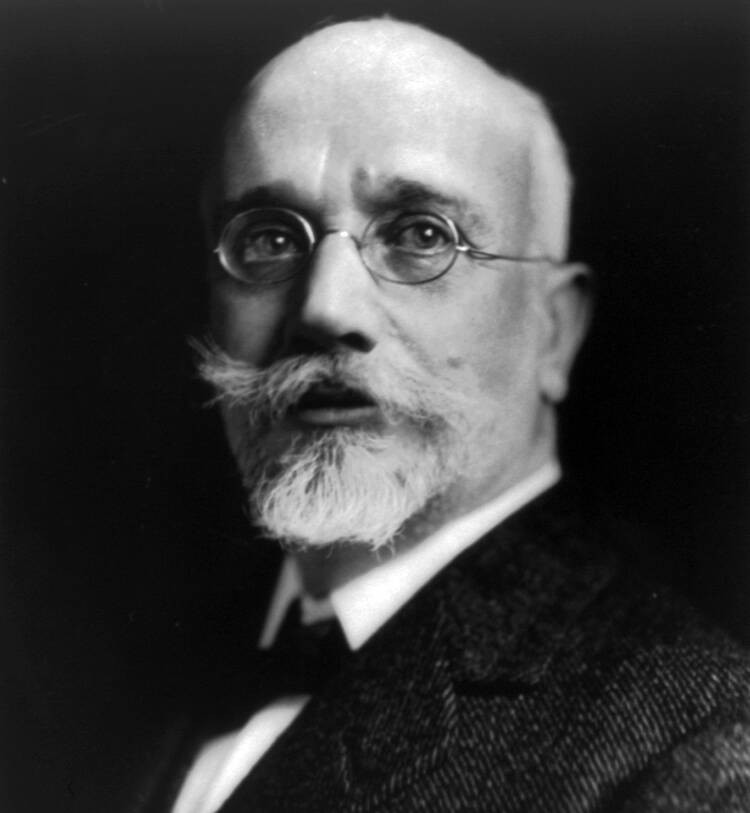
So, when he caught the flu in early 1931 along with thousands of other Greeks, he made sure to stay at home and communicate with his associates from a distance. "The Prime Minister remained slightly bedridden yesterday. Mr. Venizelos received only the Minister of Welfare, Mr. Iasonidis, in cooperation on various issues concerning Macedonia. "Mr. Iasonidis left yesterday evening in Thessaloniki", we read in the newspaper "Eleftheron Vima" of January 27, 1931.
Half the government is bedridden
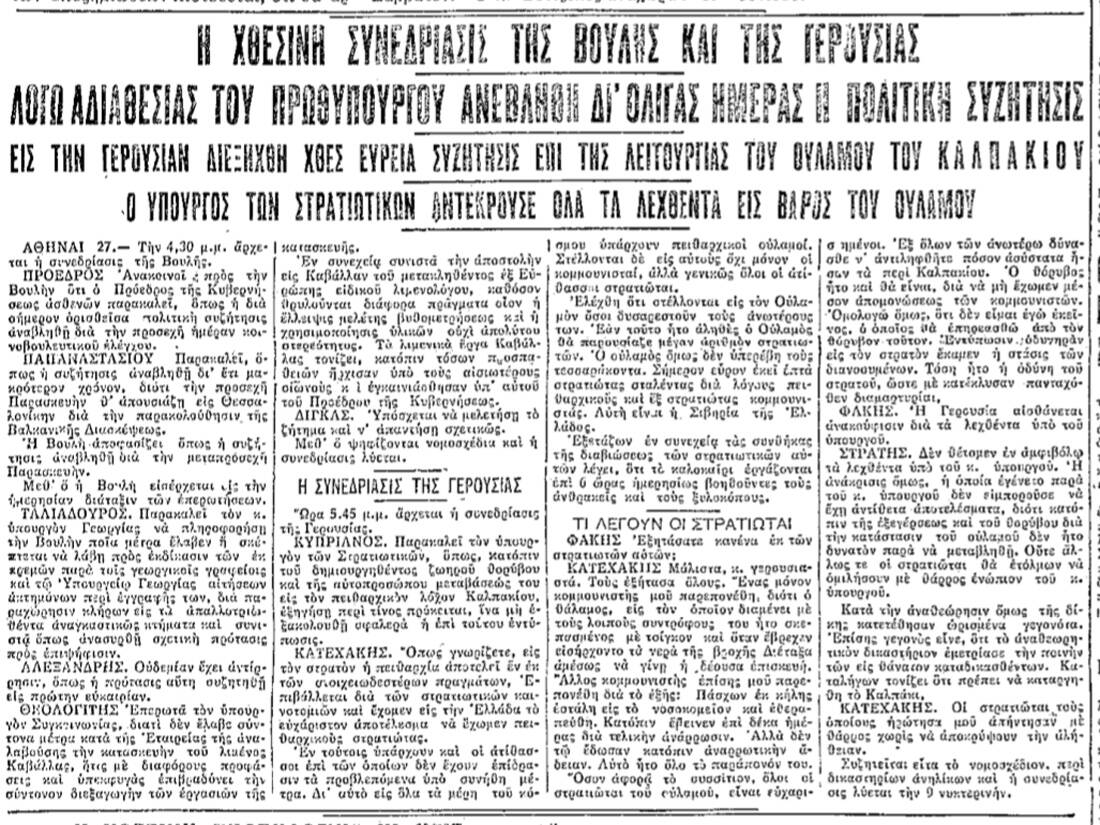
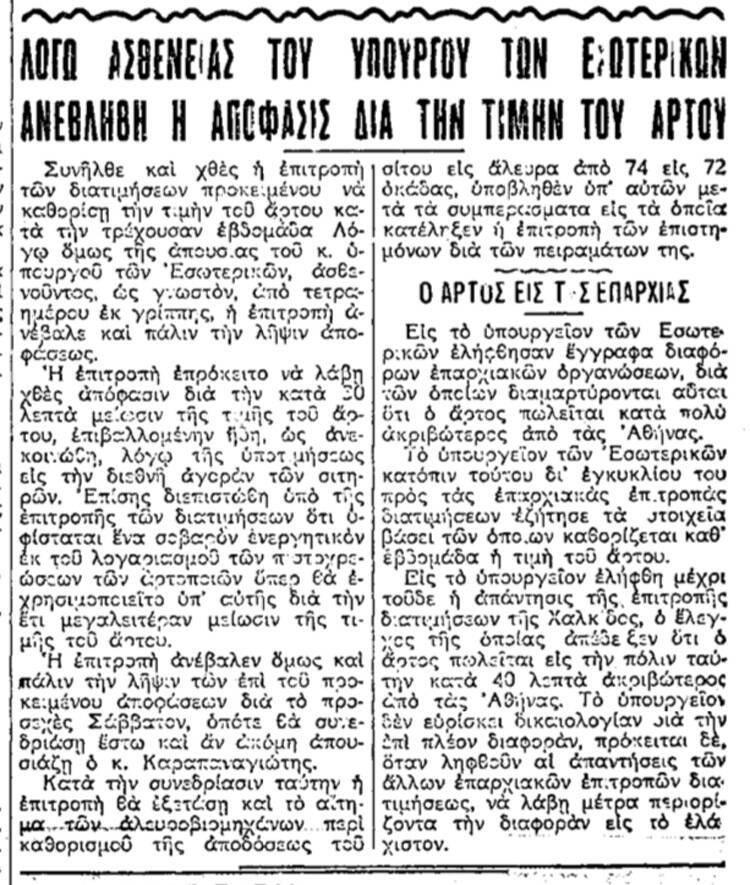
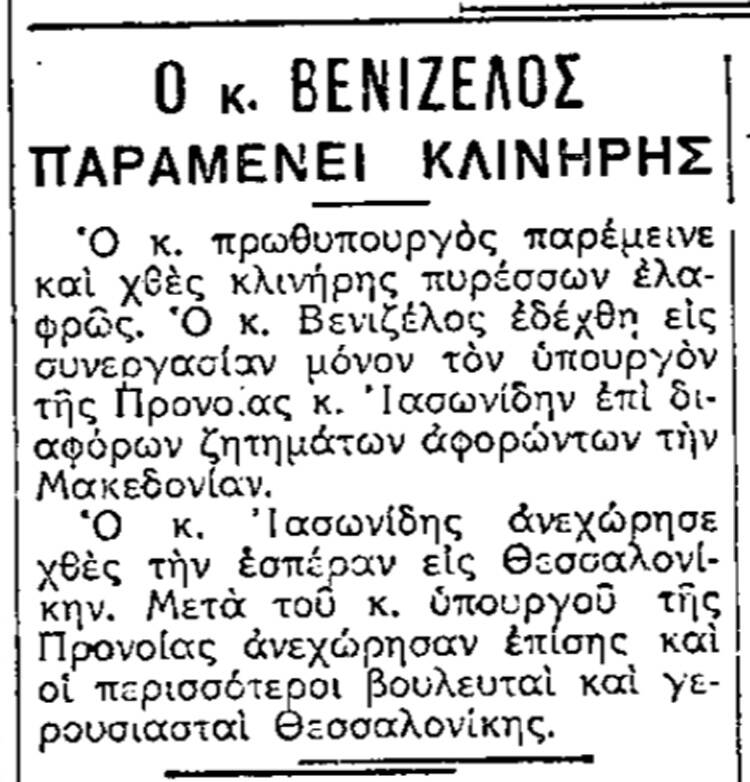
However, the Speaker of the Parliament, Ioannis Tsirimokos (father of the short-lived Prime Minister Elias Tsirimokou), the Minister of Communications, Dimitrios Digas, the Minister of Interior, Vyron Karapanagiliotis, the Minister of Navy, Undersecretaries and several more Members. We learn from the press of the time that in those days "Admiral Koundouriotis was also slightly ill with the flu".
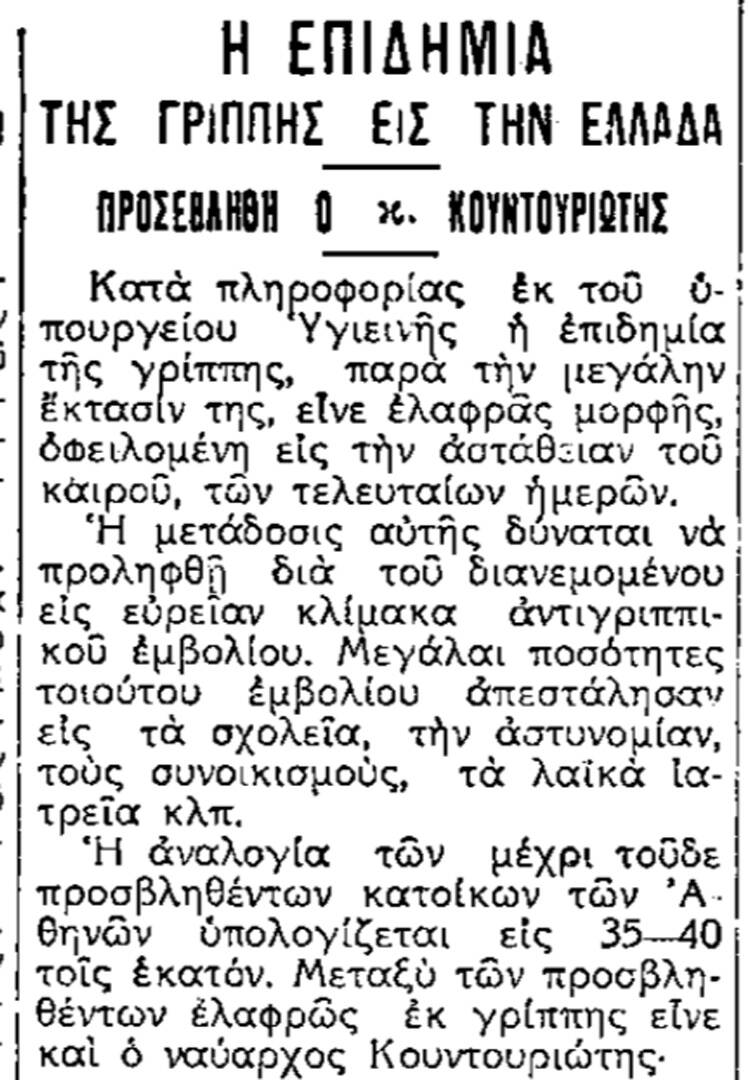
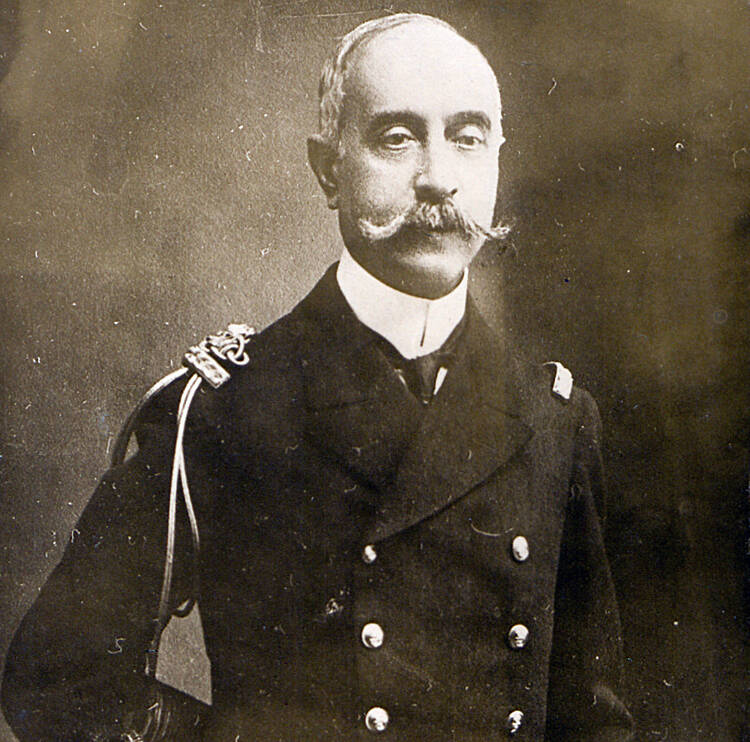
The former regent, president of the Hellenic Republic and commander of the cruiser "G. Averoff ", Pavlos Koundouriotis, was against drugs. He believed that mother nature would cure the virus on its own, so he just stayed home and waited for the days to pass so that the disease could cycle and he could return to his duties.
"You do not have… flu?"
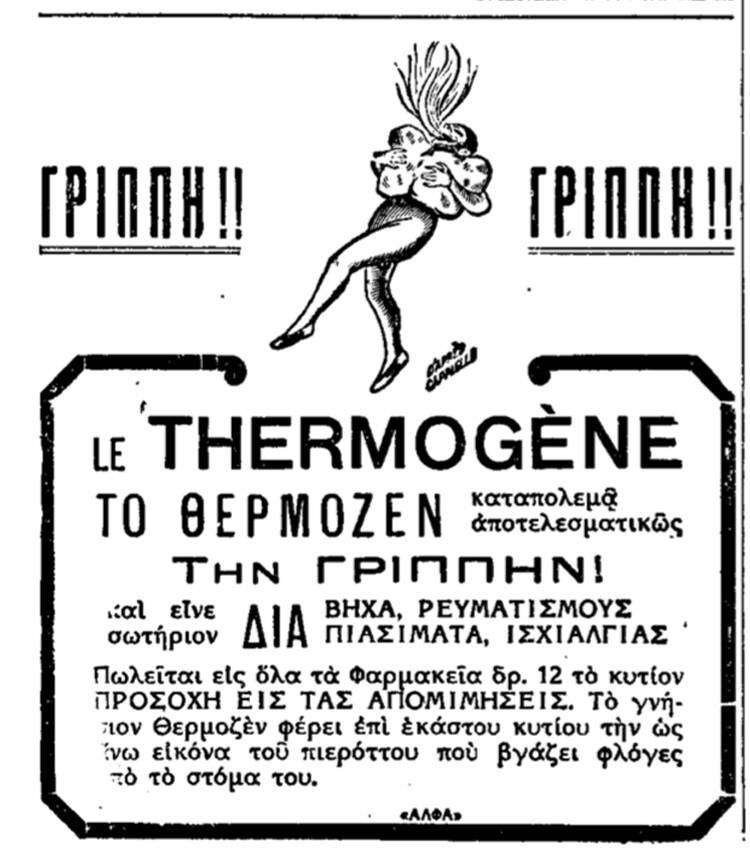
The most enjoyable text, however, about the situation that prevailed in those days with the virus, was the one that was published in the newspaper "Eleftheron Vima" of January 24, 1931, signed by a "Fortunio", under the title "Grippitsa". We read (with the spelling of the time): “Don't you have? Not even light? Not enough to just bring the handkerchief to the forehead, every ten minutes at least, closing your eyes with a tired style? Well, then, madam, you are not fashionable at all! A lady as she should at the moment must at least be cohesive. There are diseases of fashion, as well as hats, skirts and bags, that a lady, respecting herself, has to go through when the "season" comes. One of them is the flu. Her luck is one of the strangest. It used to be called "imfuezza".
* George Sarris is a journalist - member of ESIEA, honored by the President of the Republic with the Ath. Botsis Award for the objective and complete presentation of historical political issues.
